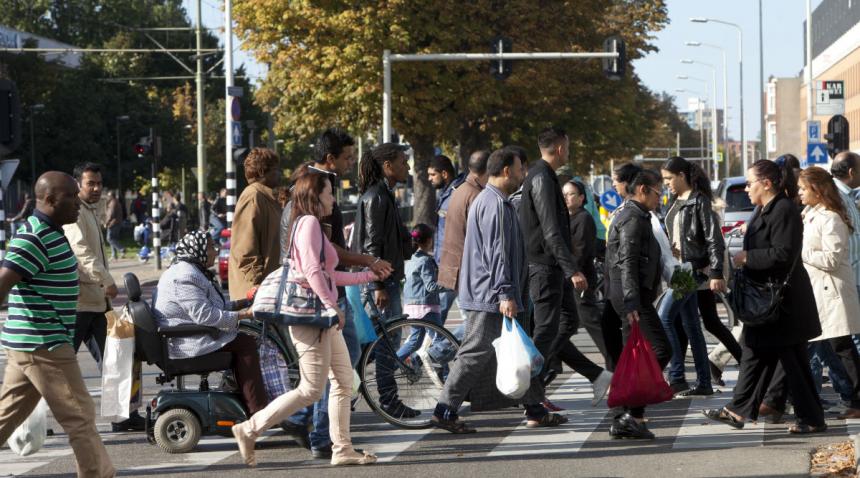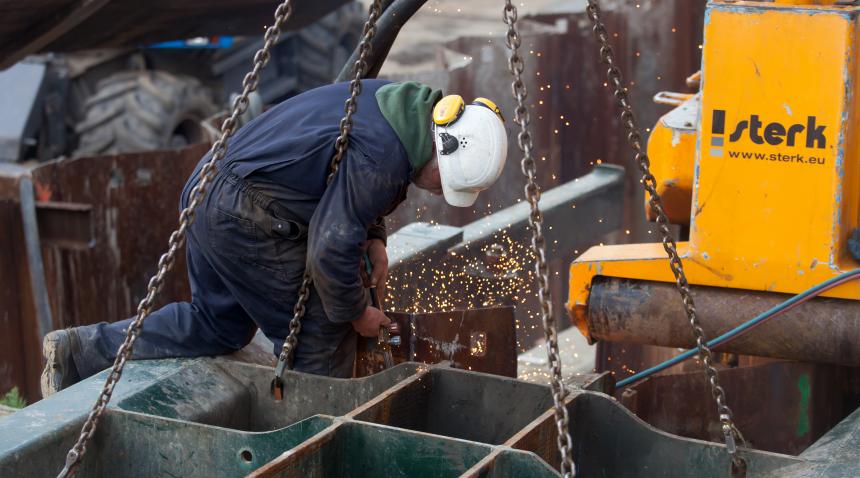
Workplace culture
Dutch workplaces are generally familiar and welcoming. Official working hours are somewhere between 8:30 and 17:30, Mondays to Fridays. Although Dutch is the official language, most businesspeople have no problem communicating in English. However, some aspects of labour culture in the Netherlands may seem unusual for internationals.
An Informal Working Environment
Offices in the Netherlands can be surprisingly informal places to work. The Dutch value equality and tolerance of differences, and you can often feel this in the labour culture. It is not unusual to regularly ask your superiors questions, and everyone’s opinions are usually welcome – whatever their role.
Casual work gatherings are common, such as the vrijmibo, or vrijdagmiddagborrel: an informal meet-up on a Friday afternoon with colleagues. Your boss may or may not be there – but most people will relax and act the same either way.
In general, many workplaces aim to be welcoming and value friendliness and good humour. You don’t have to pretend: it’s often more important to get along well than to show a lot of respect to your superiors.
A Formal Business Culture
However, this doesn’t mean that Dutch workplaces are all play and no work. The Dutch work ethic is very strong: people like to work, and want to do a good job. In many business settings, the labour culture can actually be more formal than you might expect. For example, appointments are made well in advance and preferably in writing. People are rarely late, and expect you to be on time.
The usual business greeting is a brief, firm handshake, with good eye contact. What you should wear varies by job and industry. Many offices expect formal clothes such as suits. But many start-ups and creative companies may cultivate a more casual dress code. When in doubt, start smart, and then see what others are wearing!
The tone is more formal in work meetings than in daily interactions. Discussion will be very structured and should stay close to the agenda.
Communicating Directly
This also relates to how the Dutch communicate in general. The way people speak in the Netherlands can be very direct and to-the-point: to some, this may seem blunt or harsh. But it is not meant unkindly: it is important in the Netherlands to be pragmatic and communicate clearly.
This is partly because consensus is very important in the Netherlands. Everyone’s opinions should be heard before making a decision, which tends to make negotiations honest
and consensual. Managers will often ask for input from their team. In many cases, they are open to constructive criticism.
In work meetings, this also means you should be clear and precise. Try to give well-structured, factually accurate presentations, with clear evidence or data to back up your statements. The Dutch have a very analytical approach, so expect precise questions and be prepared to know the details. Everything you say will be taken literally and honestly, so don’t make promises you can’t keep, and avoid overselling or exaggerating claims.
Work-Life Balance
Most Dutch people like to keep their work and personal lives separate. Home time is sacred, meaning that people will not often answer work-related calls or emails outside of office hours.
For some, those hours may be shorter than you think. It’s common for working parents to take some hours or days off each week for time with their children or families: this usually happens on Wednesdays or Fridays. In general, the Dutch prefer to work less (but better) than to work very busy schedules for more money.
And that’s also why Dutch lunches tend to be fairly short – and often unpaid. Expect colleagues to bring home-made sandwiches, and don’t be surprised if there isn’t much time to chat!
Find out more about employee protections in the Netherlands and the Dutch social security system, and learn about employment contracts.



